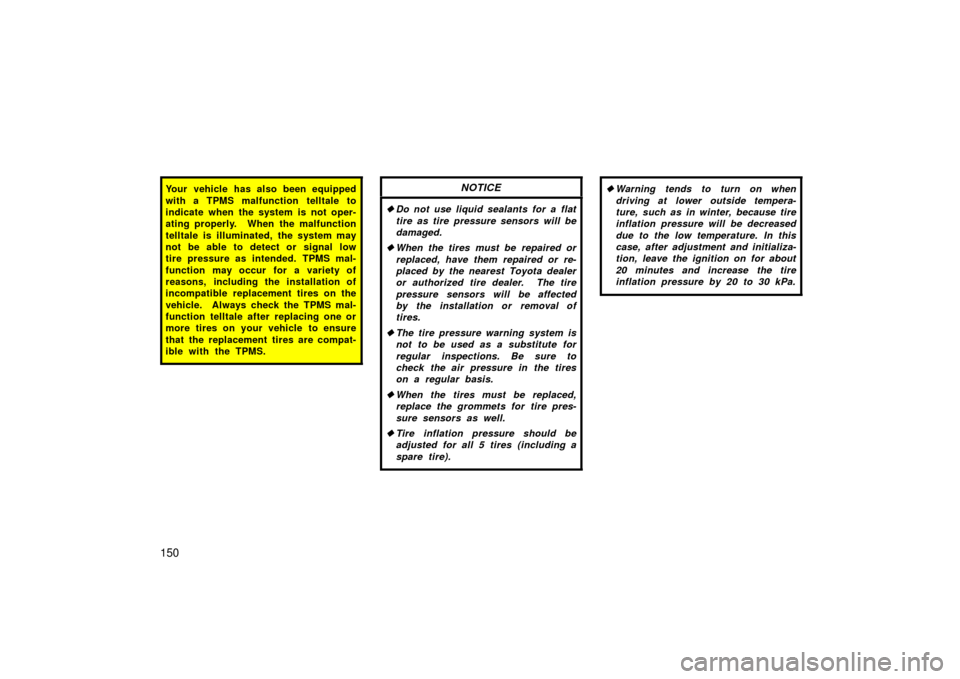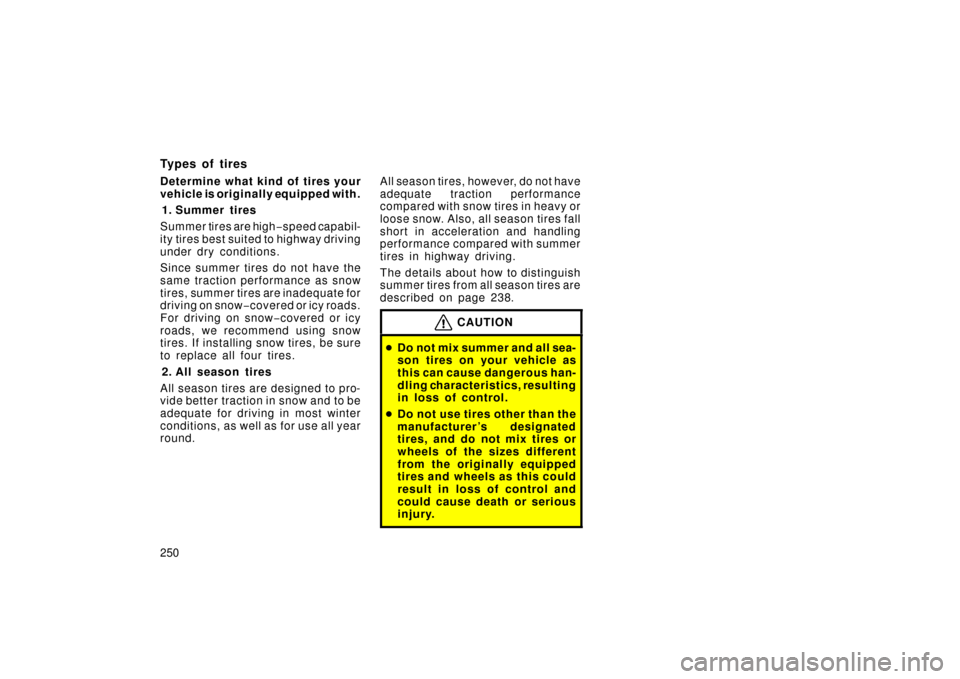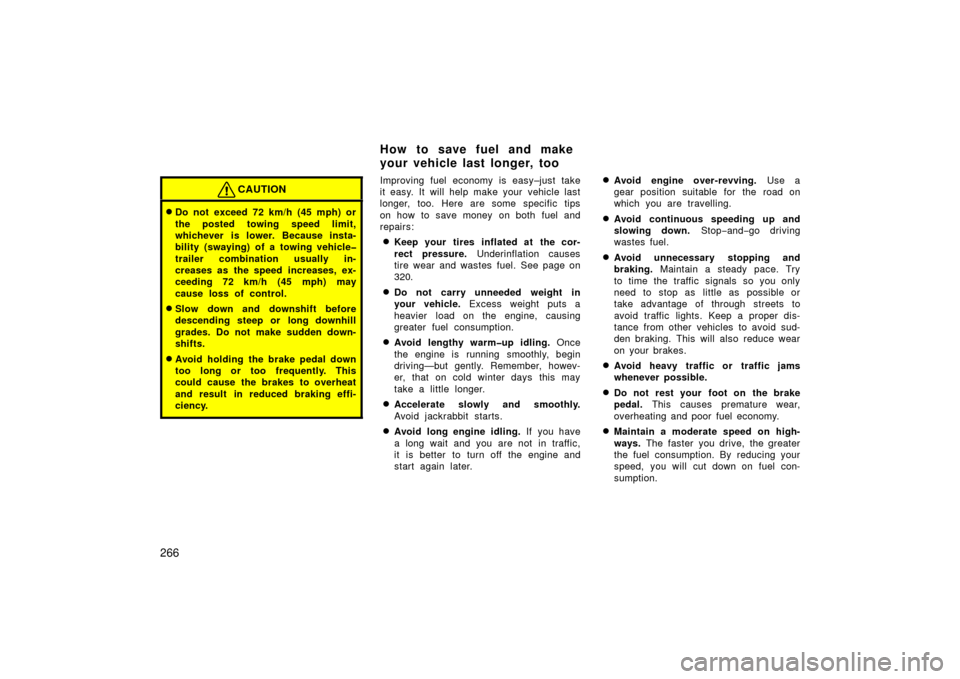Page 160 of 364

150
Your vehicle has also been equipped
with a TPMS malfunction telltale to
indicate when the system is not oper-
ating properly. When the malfunction
telltale is illuminated, the system may
not be able to detect or signal low
tire pressure as intended. TPMS mal-
function may occur for a variety of
reasons, including the installation of
incompatible replacement tires on the
vehicle. Always check the TPMS mal-
function telltale after replacing one or
more tires on your vehicle to ensure
that the replacement tires are compat-
ible with the TPMS.NOTICE
�Do not use liquid sealants for a flat
tire as tire pressure sensors will be
damaged.
� When the tires must be repaired or
replaced, have them repaired or re-
placed by the nearest Toyota dealer
or authorized tire dealer. The tire
pressure sensors will be affected
by the installation or removal of
tires.
� The tire pressure warning system is
not to be used as a substitute for
regular inspections. Be sure to
check the air pressure in the tires
on a regular basis.
� When the tires must be replaced,
replace the grommets for tire pres-
sure sensors as well.
� Tire inflation pressure should be
adjusted for all 5 tires (including a
spare tire).
�Warning tends to turn on when
driving at lower outside tempera-
ture, such as in winter, because tire
inflation pressure will be decreased
due to the low temperature. In this
case, after adjustment and initializa-
tion, leave the ignition on for about
20 minutes and increase the tire
inflation pressure by 20 to 30 kPa.
Page 260 of 364

250
Types of tires
Determine what kind of tires your
vehicle is originally equipped with.1. Summer tires
Summer tires are high −speed capabil-
ity tires best suited to highway driving
under dry conditions.
Since summer tires do not have the
same traction performance as snow
tires, summer tires are inadequate for
driving on snow −covered or icy roads.
For driving on snow −covered or icy
roads, we recommend using snow
tires. If installing snow tires, be sure
to replace all four tires.
2. All season tires
All season tires are designed to pro-
vide better traction in snow and to be
adequate for driving in most winter
conditions, as well as for use all year
round. All season tires, however, do not have
adequate traction performance
compared with snow tires in heavy or
loose snow. Also, all season tires fall
short in acceleration and handling
performance compared with summer
tires in highway driving.
The details about how to distinguish
summer tires from all season tires are
described on page 238.
CAUTION
�
Do not mix summer and all sea-
son tires on your vehicle as
this can cause dangerous han-
dling characteristics, resulting
in loss of control.
� Do not use tires other than the
manufacturer’s designated
tires, and do not mix tires or
wheels of the sizes different
from the originally equipped
tires and wheels as this could
result in loss of control and
could cause death or serious
injury.
Page 276 of 364

266
CAUTION
�Do not exceed 72 km/h (45 mph) or
the posted towing speed limit,
whichever is lower. Because insta-
bility (swaying) of a towing vehicle�
trailer combination usually in-
creases as the speed increases, ex-
ceeding 72 km/h (45 mph) may
cause loss of control.
�Slow down and downshift before
descending steep or long downhill
grades. Do not make sudden down-
shifts.
�Avoid holding the brake pedal down
too long or too frequently. This
could cause the brakes to overheat
and result in reduced braking effi-
ciency.
Improving fuel economy is easy–just take
it easy. It will help make your vehicle last
longer, too. Here are some specific tips
on how to save money on both fuel and
repairs:
�Keep your tires inflated at the cor-
rect pressure. Underinflation causes
tire wear and wastes fuel. See page on
320.
�Do not carry unneeded weight in
your vehicle. Excess weight puts a
heavier load on the engine, causing
greater fuel consumption.
�Avoid lengthy warm�up idling. Once
the engine is running smoothly, begin
driving—but gently. Remember, howev-
er, that on cold winter days this may
take a little longer.
�Accelerate slowly and smoothly.
Avoid jackrabbit starts.
�Avoid long engine idling. If you have
a long wait and you are not in traffic,
it is better to turn off the engine and
start again later.
�Avoid engine over-revving. Use a
gear position suitable for the road on
which you are travelling.
�Avoid continuous speeding up and
slowing down. Stop−and− go driving
wastes fuel.
�Avoid unnecessary stopping and
braking. Maintain a steady pace. Try
to time the traffic signals so you only
need to stop as little as possible or
take advantage of through streets to
avoid traffic lights. Keep a proper dis-
tance from other vehicles to avoid sud-
den braking. This will also reduce wear
on your brakes.
�Avoid heavy traffic or traffic jams
whenever possible.
�Do not rest your foot on the brake
pedal. This causes premature wear,
overheating and poor fuel economy.
�Maintain a moderate speed on high-
ways. The faster you drive, the greater
the fuel consumption. By reducing your
speed, you will cut down on fuel con-
sumption.
How to save fuel and make
your vehicle last longer, too